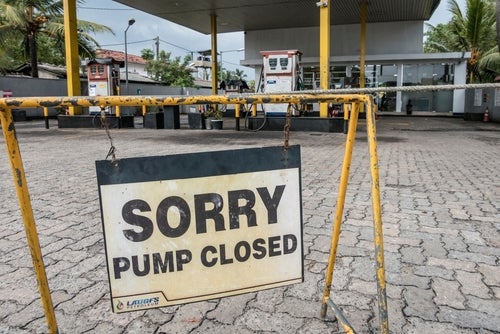
Sri Lanka’s energy minister, Kanchana Wijesekera, has issued a warning over the country’s fuel stocks according to a report published by the BBC, saying there is only enough petrol left for less than a day under regular demand, with the next shipment not due for another two weeks.
Wijesekera reportedly told media the country had 12,774 tonnes of diesel and 4,061 tonnes of petrol left in its reserves.
He added the central bank could only supply US$125m for fuel purchases, far less than the $587m needed for its scheduled shipments, according to the report, which adds the country owed $800m to seven suppliers for purchases it made earlier this year.
A spokesperson for Sri Lanka’s Joint Apparel Association Forum (JAAF) acknowledged to Just Style in an exclusive comment that there is “much concern about the fuel shortage” and said apparel manufacturing exporters “are managing daily operations to meet production deadlines.”
“Currently, several factories have sufficient fuel stocks to fulfil ongoing production requirements,” the spokesperson added.
Sri Lanka is currently battling its worst economic crisis in 70 years and last month JAAF warned export earnings in the clothing sector for the June-August period can be expected to fall by 20-25% and it is likely to miss the $6bn export target for the year.

US Tariffs are shifting - will you react or anticipate?
Don’t let policy changes catch you off guard. Stay proactive with real-time data and expert analysis.
By GlobalDataJAAF secretary-general Yohan Lawrence said a loss of buyers’ confidence in the industry because of the “political instability” is a real risk.
With apparel accounting for on average 40% of Sri Lanka’s total export revenue, there is an urgent need to maintain buyers’ confidence in the industry, he said, adding “the perceived threat to the sector” has been very damaging.



